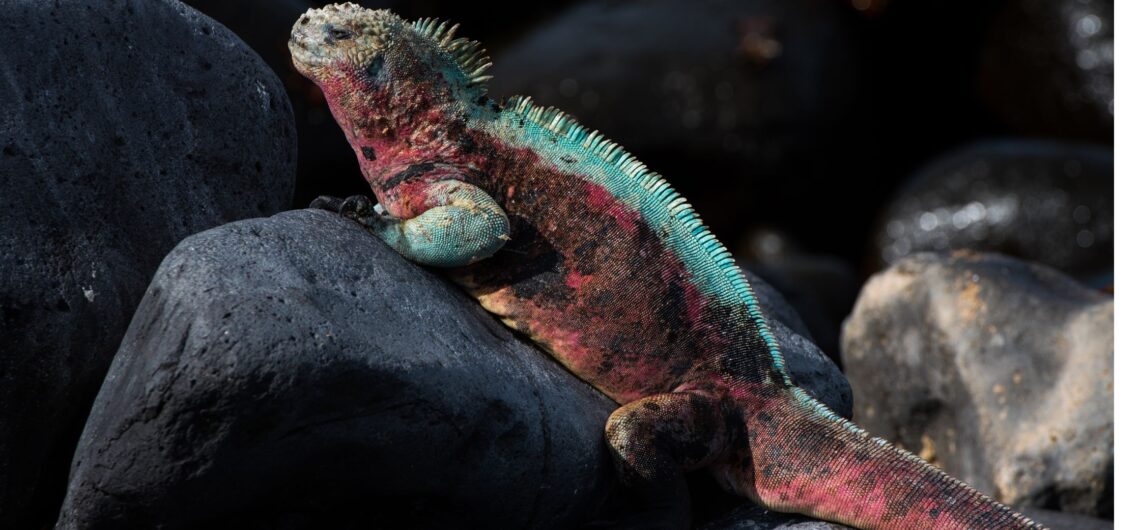🦎💗 The Pink Iguana Lives On: Hatchlings Found on Wolf Volcano
Galápagos, July 2025 – A triumph for wildlife conservation
High on the rugged slopes of Wolf Volcano, in one of the most remote corners of Isabela Island, scientists have made a breathtaking discovery: hatchlings of the critically endangered pink iguana (Conolophus marthae) have been observed in the wild for the first time ever.
🧬 A species like no other
With its pale pink skin striped by black bands, the pink iguana is a true evolutionary relic — a lineage that split from other Galápagos iguanas over 5 million years ago.
First spotted in 1986 and formally described in 2009, today there are fewer than 300 individuals left on Earth.
“This is a historic milestone. For the first time, we have direct evidence that pink iguanas are still breeding in the wild.”
— Dr. James Gibbs, Galápagos Conservancy
🔍 How was this discovery made?
Thanks to the tireless efforts of the Galápagos National Park and Galápagos Conservancy teams, who used:
-
Hidden camera traps positioned along the crater
-
DNA sampling and nest monitoring
-
Invasive species control (rats, cats)
This discovery is more than scientific news — it’s an evolutionary victory.
🌋 Where do pink iguanas live?
📍 Exclusively on Wolf Volcano, in northern Isabela Island (not Fernandina).
There is no public access to this area, making the species both elusive and protected — at least for now.
⚠️ Still on the edge
The pink iguana is classified as Critically Endangered by the IUCN. Its survival depends on:
-
Habitat protection
-
Control of invasive predators
-
Potential future breeding programs in managed environments
💬 Why does this matter?
Because in a world losing species every day, one pink hatchling on a volcanic slope is a symbol of resilience and hope.
Protecting Galápagos is not just about rare wildlife — it’s about defending the living history of our planet.
🌈 Did you know?
💗 The iguana’s pink color isn’t due to albinism — it’s a rare genetic trait that affects pigment production, making them glow with uniqueness.
💗 Wolf Volcano is also home to giant tortoises and remains one of the least disturbed ecosystems in the archipelago.
📸 Want to know more about Galápagos conservation stories?
While the pink iguana is off-limits to tourists, its story can inspire real-world action.
Explore, learn, and protect with us.






Comments